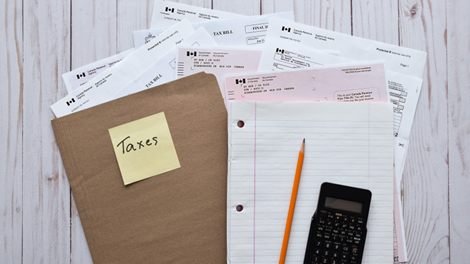Financial Issues & Answers for Everyone
A thorough analysis of today’s financial news—delivered weekly to your inbox or via social media. As part of Knowledge Bureau’s interactive network, the Report covers current issues on the tax and financial services landscape and provides a wide range of professional benefits, including access to peer-to-peer blogs, opinion polls, online lessons, and vital industry information from Canada’s only multi-disciplinary financial educator.
This Month’s Poll
Do you agree with the government’s plan to introduce the new Canada Groceries Essentials Benefit (CGEB)?

Pros Required: Unwise to Dabble in Tax Preparation
Why is professional tax preparation growing in Canada? Taxes and lives are changing constantly, and the shift to a fully digital tax system now requires a full-time commitment to get it right. Errors can cost taxpayers thousands, and the entire relationship with the CRA matters. In 2024–2025, the CRA processed more than 33.2 million individual tax returns, and reported a 47% increase in objections over the previous year. As a result, even “simple returns” now demand technical accuracy, process discipline, and familiarity with Canada’s digital tax environment- making strong foundational filing skills a professional necessity.

2026 Automobile Deduction Limits Released – Finally
The government finally announced the 2026 automobile deduction limits on January 14, 2026, significantly later than in prior years, when the announcements typically came in December. Here are the new rates, as of January 1, 2026:

OAS Application Deadline: A Critical February Date Tax Professionals Shouldn’t Miss
As you enter the busiest time of year as tax professionals, there are several deadlines apart from April 30 that you will want to discuss with your clients. Among them is the earliest application date for Old Age Security (OAS).

Should the Canada Employment Credit Reflect the True Cost of Going to Work?
With the rising cost of transportation, meals, clothing, and other work-related expenses, many Canadians are questioning whether the Canada Employment Credit, set at $1,501 for 2026, still reflects the real cost of earning employment income. Tax professionals, employers, and taxpayers continue to debate whether the credit should be increased, restructured, or replaced altogether. When our poll asked if the Canada Employment Credit should be increased, 87% said yes. Below are perspectives shared by tax and financial professionals across the country.

Achieving a Health Balance: Business Planning Matters
How maxed out is your time going to be in early 2026? Most business owners struggle with this – too much to do, too little time. To prioritize consider: are you spending more time working on the creation of income or the creation of wealth? They are conjoined for sure, but by executing on financial priorities that are critical in all the important spheres in your life –in a healthy balance – you will likely achieve more of both.

